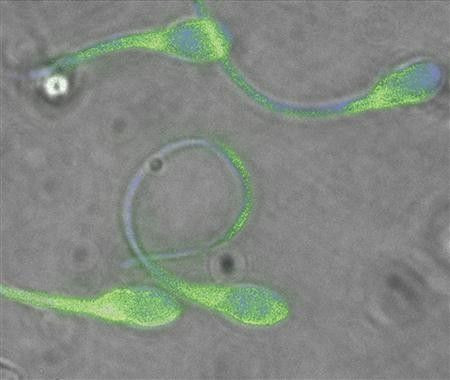Sperm Donors Father up to 150 Children, Accidental Incest a Concern

Overly generous sperm donors have birthed a host of health concerns, as the largely unregulated process for donation can lead to groups of half-siblings who are unaware that they are linked through a common father.
The New York Times uncovered an astonishing example in a recent article, telling the story of a mother who did some research and found that her son, conceived with artificial insemination, was one of 150 children who sprang from the same source. The growing use of artificial insemination has made such networks of sperm donor half-siblings increasingly common, if usually smaller than 150.
The result is more than just eery situations (the mother mentioned above vacations with the other families and remarked on how the children look alike). For some parents, the prevalence of babies from a single donor has raised the possibility that their children may inadvertently cross paths with half siblings and begin relationships.
My daughter knows her donor's number for this very reason, the anonymous mother of a teenager conceived via sperm donation told the Times. She's been in school with numerous kids who were born through donors. She's had crushes on boys who are donor children. It's become part of sex education.
Also of concern is the fact that there are minimal regulations on who can or cannot donate sperm. Unlike in some other countries, the United States does not place a limit on how many children can come from a single donor. Donors only have to be screened for sexually transmitted diseases and some hereditary diseases, and their ability to remain anonymous makes it very difficult for their children to access information such as medical conditions they may inherit.
I was given a little quarter-page legal thing to sign that just said it was my responsibility to let them know if I had a sexually transmitted disease, was how Kirk Maxey, a formerly prolific donor, described his experience to ABC. And then the one line that said 'and this will remain anonymous.' Very vague and very general.
A separate ABC story described how a donor's child named Tyler Blackwell was unaware until he tracked down the father that he had inherited a rare and deadly aortic heart defect.
Tyler had a time bomb ticking in his chest, Blackwell's mother told ABC. It didn't occur to anyone to tell us.
For these reasons, people are calling for better regulation of the sperm bank industry, including laws that limit a donor's ability to hide behind a wall of anonymity. In July, Washington became the first state to grant donor children access to their fathers' medical histories.
We need to publicly ask the questions 'What is in the best interests of the child to be born?' and 'Is it fair to bring a child into the world who will have no access to knowing about one half of their genetics, medical history and ancestry?' Wendy Kramer, founder of the Donor Sibling Registry, told the New York Times. These sperm banks are keeping donors anonymous, making women babies and making a lot of money. But nowhere in that formula is doing what's right for the donor families.
In particular, people argue that the original legal framework is no longer adequate to address the soaring number of sperm donor babies.
In the past, when decisions were made about how many children should be attributed to a donor, it was based on estimates of the risk of unintended consanguinity between brothers and sisters who could meet and marry, Dr. Robert Brzyski, chair of the American Society for Reproductive Medicine ethics committee, told the Times. I think those models were very limited in their vision when they were created. Now I think there needs to be a reassessment of the criteria and the policies regarding the appropriate number of offspring.
© Copyright IBTimes 2024. All rights reserved.





















